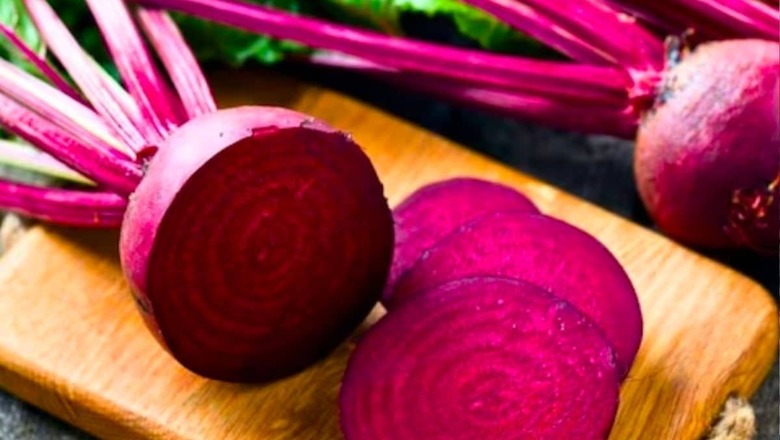
views
Beetroot is one of the humble root vegetables that adds an earthy flavour to many dishes while also offering many health benefits. Due to its medicinal and nutritional properties, the vegetable is considered a healthy option when it comes to superfoods. Its consumption has been linked with treating diabetes, fever, constipation, digestive diseases, and anaemia. Despite the countless benefits, it is advised that people with certain conditions should not consume the vegetable as it can have repercussions on the skin.
Dr Sonal Garg, the Government Ayurvedic Medical Officer, recently shared the medicinal properties found in the vegetable. Speaking about the same, Dr Sonal said, “Beetroot is considered to have bile properties due to its sweet and astringent taste. It is recommended for people who experience inflammation in the body. It is rich in antioxidants and nutrients, making it an excellent heart-healthy food.”
However, Sonal also shared that a certain group of people should not consume the vegetable and highlighted the side effects of the same as well.
Enlisted below are the side effects of vegetable and how can negatively impact people:
If you have been diagnosed with kidney stones, you should avoid eating beetroot as it is high in oxalates. However, they can consume a minimal quantity of cooked beetroot.
Due to its high nitrate content, beetroot offers blood pressure-lowering properties. Hence, people with low blood pressure should avoid consuming the vegetable.
Those who are allergic to beetroot are oxalates intolerant. Therefore, it is better to avoid consuming the vegetable.
For those dealing with digestive problems, beetroots can be dangerous as it can lead to various health issues.
Speaking about how to include beetroot in the diet, Dr Sonal says that grated beetroot when mixed with wheat flour can be eaten as idli or dosa. You can also make delicious beetroot halwa. This will lessen the chances of any side effects if consumed in a controlled quantity.
















Comments
0 comment